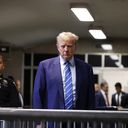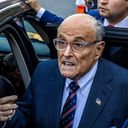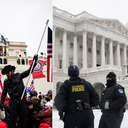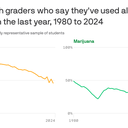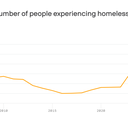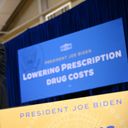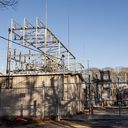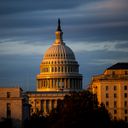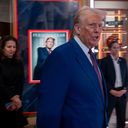Supreme Court denies Trump's effort to stop hush money sentencing
The Supreme Court on Thursday denied President-elect Trump's request to delay his Friday sentencing in his criminal hush money case.
Why it matters: Though Trump faces no jail time for his 34 felony convictions, the Supreme Court's decision is the final blow to his efforts to sideline his sentencing just days before he returns to the White House.
- The sentencing will formalize his status as the only living president to be convicted of a crime.
What he's saying: Trump said on Truth Social Thursday evening he appreciated the "time and effort" the Supreme Court had taken "in trying to remedy the great injustice done to me," as he complained about presiding Judge Juan Merchan and his prosecution in the New York case.
- "For the sake and sanctity of the Presidency, I will be appealing this case, and am confident that JUSTICE WILL PREVAIL," he said, indicating he will appeal the sentencing.
Catch up quick: Trump turned to the Supreme Court in an 11th-hour attempt to halt proceedings in the case while his presidential immunity appeals play out.
- "Forcing President Trump to prepare for a criminal sentencing in a felony case while he is preparing to lead the free world as President of the United States in less than two weeks imposes an intolerable, unconstitutional burden on him that undermines these vital national interests," Trump's team wrote in their appeal to the Supreme Court.
- His attorneys further contended that presidential immunity should extend to presidents-elect in the "brief but crucial" time before they take office.
State of play: The 5-4 decision by the conservative-majority court all but ensures that Trump's sentencing continues as planned for Friday.
- Chief Justice John Roberts and Amy Coney Barrett, whom Trump appointed to the high court, sided with the liberal justices in making the decision.
Zoom in: Trump's sentencing will place a "relatively insubstantial" burden on his responsibilities as president-elect, the Supreme Court said.
- Merchan has indicated that he'd impose a sentence of "unconditional discharge."
- The Supreme Court noted that Trump's "alleged evidentiary violations" could be addressed on appeal.
Zoom out: District Attorney Alvin Bragg argued in a Thursday filing to the Supreme Court that there is "no basis for such intervention" to take the "extraordinary step" of halting sentencing before the court's final decision.
- The "defendant makes the unprecedented claim that the temporary presidential immunity he will possess in the future fully immunizes him now, weeks before he even takes the oath of office," Bragg wrote of Trump's stay request.
Flashback: A New York jury found Trump guilty on 34 counts of falsifying business records last year, making him the first-ever former U.S. president to be a convicted felon.
- But the Supreme Court's ruling that presidents have immunity for "official acts" gave Trump legal ammunition in his numerous attempts to see the case tossed or postponed.
- His federal criminal cases crumbled after his presidential win, and his Georgia case remains frozen in limbo.
Go deeper: How prosecuting Trump backfired
Editor's note: Axios' Erin Doherty contributed reporting.
Editor's note: This article has been updated with new details throughout.


